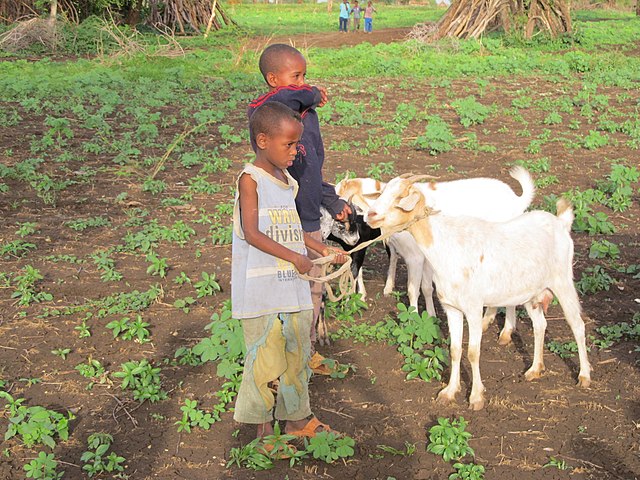Food security is the state of having reliable access to a sufficient quantity of affordable, nutritious food. The availability of food for people of any class, gender or religion is another element of food security. Similarly, household food security is considered to exist when all the members of a family, at all times, have access to enough food for an active, healthy life. Individuals who are food-secure do not live in hunger or fear of starvation. Food security includes resilience to future disruptions of food supply. Such a disruption could occur due to various risk factors such as droughts and floods, shipping disruptions, fuel shortages, economic instability, and wars. Food insecurity is the opposite of food security: a state where there is only limited or uncertain availability of suitable food.
A woman selling produce at a market in Lilongwe, Malawi
Number of people affected by undernourishment in 2010–12 (by region, in millions)
A Kenyan woman farmer at work in the Mount Kenya region
Goats are an important part of the solution to global food security because they are fairly low-maintenance and easy to raise and farm.
In politics, humanitarian aid, and the social sciences, hunger is defined as a condition in which a person does not have the physical or financial capability to eat sufficient food to meet basic nutritional needs for a sustained period. In the field of hunger relief, the term hunger is used in a sense that goes beyond the common desire for food that all humans experience, also known as an appetite. The most extreme form of hunger, when malnutrition is widespread, and when people have started dying of starvation through lack of access to sufficient, nutritious food, leads to a declaration of famine.
Martin Luther King Jr. (center), one of many 20th century political figures who considered it important to fight hunger: "When I die, don't build a monument to me. Don't bestow me degrees from great universities. Just clothe the naked. Say that I tried to house the homeless. Let people say that I tried to feed the hungry." [according to whom?]
The Hunger March sculptures in Copenhagen
Unemployed men outside a soup kitchen in Chicago, 1931
A poster made by the United States Food Administration around the years 1914-1917 urging Americans to ration








